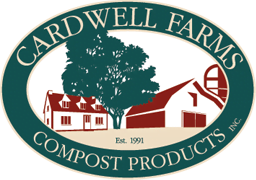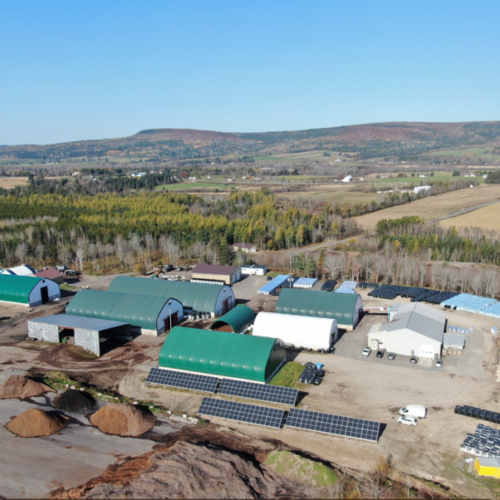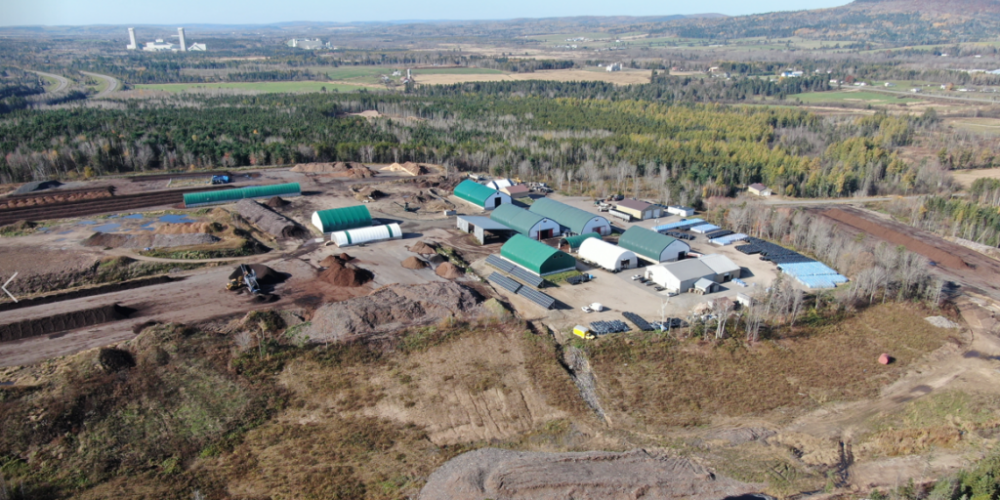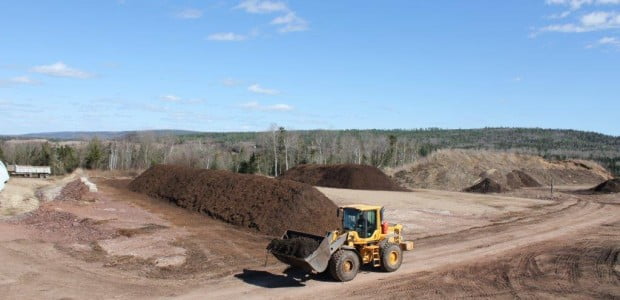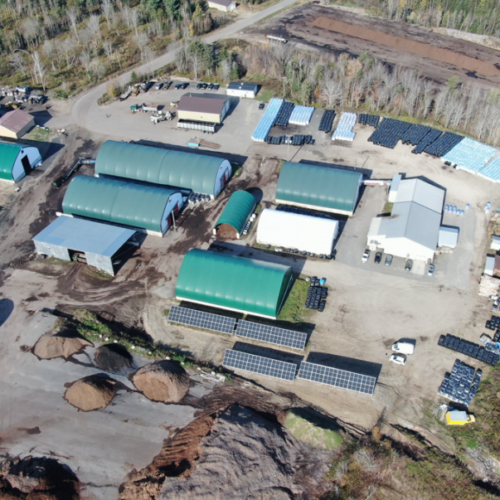Cardwell Farms Compost Products Inc. is in Penobsquis, New Brunswick, Canada
Cardwell Farms produces over 65,000 tons of finished compost and soil amendments annually. We ship to eastern Canada, the US and Caribbean.
Feedstocks include various Farm manures, residuals from aquaculture operations, and forestry by-products. Notice, we didn’t mention the word waste in the above sentence!
The composting operation has grown to over 30 acres of paved surfaces.
Recipes are developed with a specialized compost development program where a Batch code is assigned. Tracking the compost production begins with this batch code. Each of the received raw materials receive a Lot code telling us: the material type, delivery records, where they are stored on the property. Then the amount used in the recipe and where the “Lots” are combined in the correct ratios into the Batch and is put on the pad for composting. This combination is then blended with an 18’ wide straddle turner.
Each batch of compost is tracked through each stage of its active composting life. When completed, it is placed into storage allowed to cure. Then each Batch is third party laboratory tested for nutrient content, maturity, microbial cleanliness and sizing. After passing this tests, each Lot is continued to be tracked through the blending and packaging process, with every individual bag marked with the lot it came from.
Jim has stated, “In the beginning, I could manage operations out of my head,”, “That was fine for me, but if we wanted to grow our operations, I needed a management tool.” He turned to Joe Aschl of Aschl Management Systems, who develops software programs for managing all aspects of a composting facility. “I told Joe I needed to keep track of the quantities and qualities of inputs, the value of each input and to develop recipes,” he adds. “When I sell something to customers and they have success with the product, I want to be able to keep making the same product time and time again.”
Equally important to this process is being able to accurately predict how much product Cardwell Farms will have available for sale. “As our data base has grown, we know what the shrinkage is for various products,” he explains. “If we want 10,000 cubic yards of a certain product, we know we need to put ‘x’ amount into composting in order to meet our sales projection. And we know exactly what each unit of that product costs. This is valuable information for managing production costs, as well as product quality.” Despite this accuracy, there are still variables that they can’t account for exactly, such as moisture content and type of carbon received. “We can control the impact of the weather on our production, such as flattening piles to absorb rain and peaking the piles so it runs off,” he notes. “With carbon sources, the fibers will vary depending on the time of the year and how they are ground. Basically, the software management system keeps us in the proper circle of the bull’s eye!”
